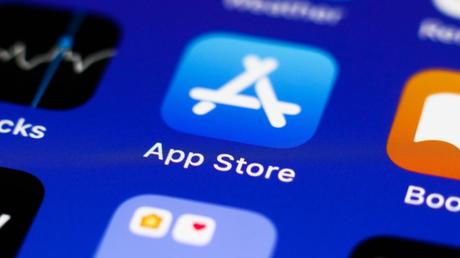
Users and programmers are frustrated by Apple’s “walled garden” setting, which allows the company to take up to 30 percent of iOS software and service sales. According to a recent report, Apple could expand its ecosystem, which might include NFT apps and phone crypto payments.
Following Bloomberg’s sources, Apple will let iPhones and iPads install programs from sources other than the App Store. In order to comply with the EU’s Digital Markets Act by 2024, changes are necessary.
In order to follow the new regulation, support for external apps from third-party sources and marketplaces will begin in Europe. If more countries adopt such rules, the function might be expanded.
According to the annual release schedule, Apple aims to have the feature in iOS 17 next fall.
Bloomberg claims that Apple is examining allowing third-party apps to utilize their own payment infrastructure as compared to demanding that developers use Apple’s. This change may facilitate bitcoin payments on iPhone and iPad apps.
Increased criticism of Apple’s restricted environment, which contrasts with Web3’s decentralized ethos and limits apps’ usage of NFT assets, caused the claimed changes. In October, Apple changed its developer guidelines to forbid NFTs from limiting app functionality and content.
Apple’s 30% NFT purchase fee may be difficult to impose on secondary market trades. The iOS apps for OpenSea and Magic Eden do not let users acquire or exchange non-fungible tokens.
Changes to Apple’s NFT regulations have also impacted iOS apps. Coinbase has recently blocked NFT transfers through its mobile Wallet app due to Apple’s demand that customers pay 30% of any network gas cost (as on Ethereum) for the activity. Coinbase considered the request “impossible.”
Dan Finlay, a former Apple employee and co-founder of MetaMask, tweeted in support of Coinbase while criticizing Apple’s “monopoly abuse.” If MetaMask is impacted by Apple’s policies, he said, “I’ll absolutely stand in solidarity here.”
NFT and crypto apps limited by App Store restrictions may benefit from Apple’s rumored ecosystem expansion plans. Bloomberg says Apple might introduce “security measures” for external apps.
The Web3 metaverse might benefit from Apple’s projected 2023 mixed reality device. Numerous Web3 developers are creating a metaverse with interoperability across platforms using NFTs to signal asset ownership and free use across spaces.
Apple’s method is also criticized by Web3 developers. Epic Games filed a lawsuit against Apple and Google’s Android Play Store after Apple prohibited Fortnite’s third-party payments system.
The companies are presently contesting a court decision that would have required Apple to permit third-party payments. Tim Sweeney, chief executive officer of Epic Games, tweeted about today’s results and called for similar legislation to force Apple to open its ecosystem in the United States.
Mark Gurman, writing for Bloomberg, says Apple is preparing to open iOS to competing app stores – but only in Europe.
— Possibly Tim Sweeney (@TimSweeneyEpic) December 13, 2022
This would leave American developers in serfdom in the nation where Apple was founded.
Congress must pass the Open Apps Market Act! https://t.co/GnCChgi0hX
If external apps are only allowed in Europe, it “would leave American developers in serfdom in the nation where Apple was founded,” Sweeney said. “Congress must pass the Open Apps Market Act!”
Elon Musk questioned if Apple “hates free speech” when Apple slashed its advertising budget on Twitter. Musk also said that Apple was considering removing the Twitter app, but after meeting with Apple CEO Tim Cook, he referred to his statements as a “misunderstanding.”
Leave this field empty if you're human: